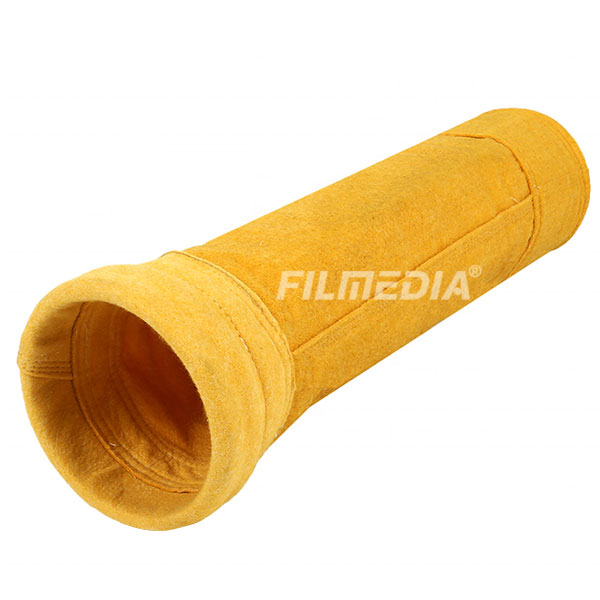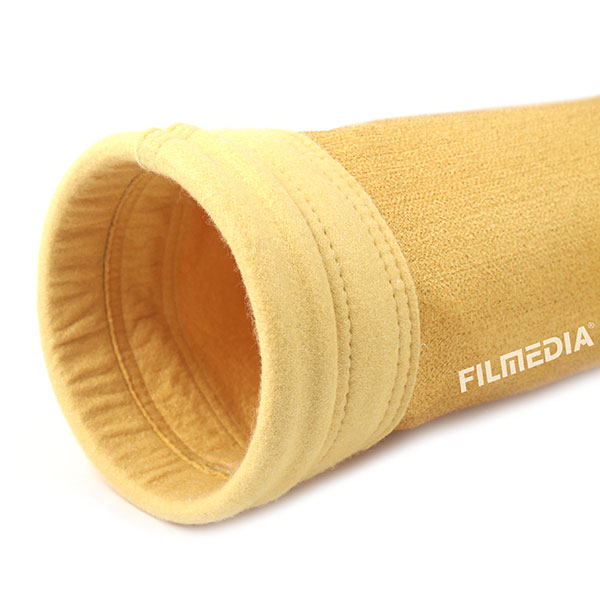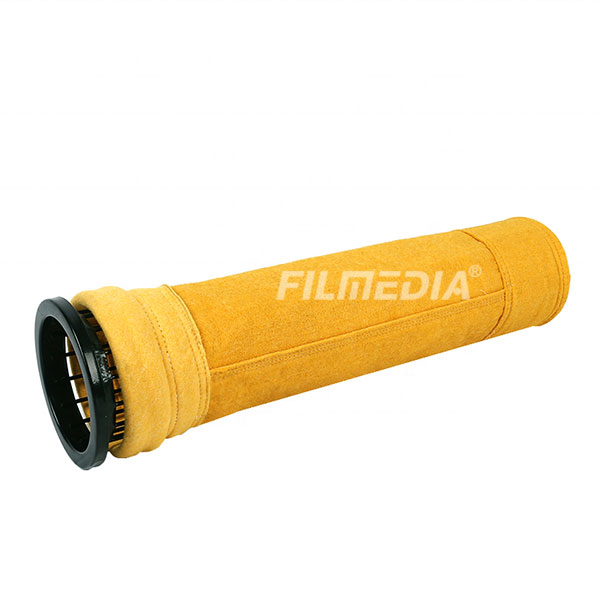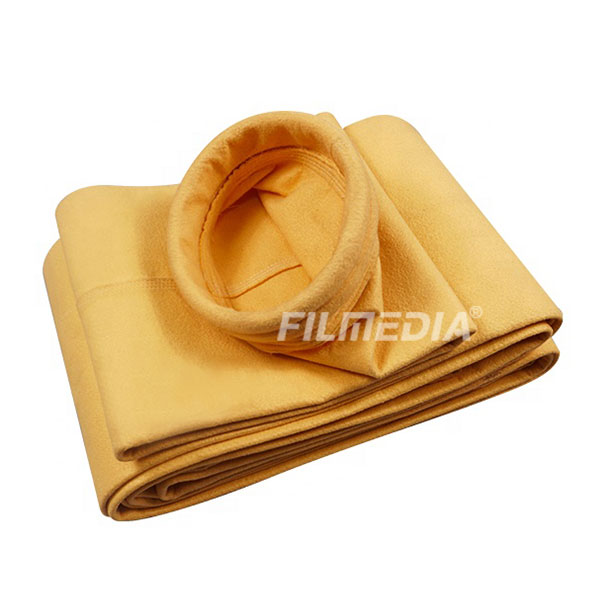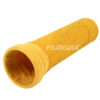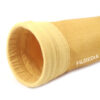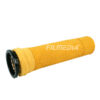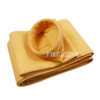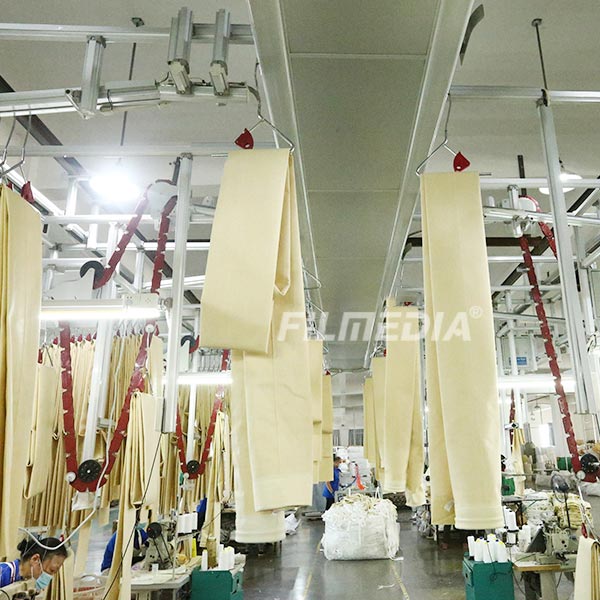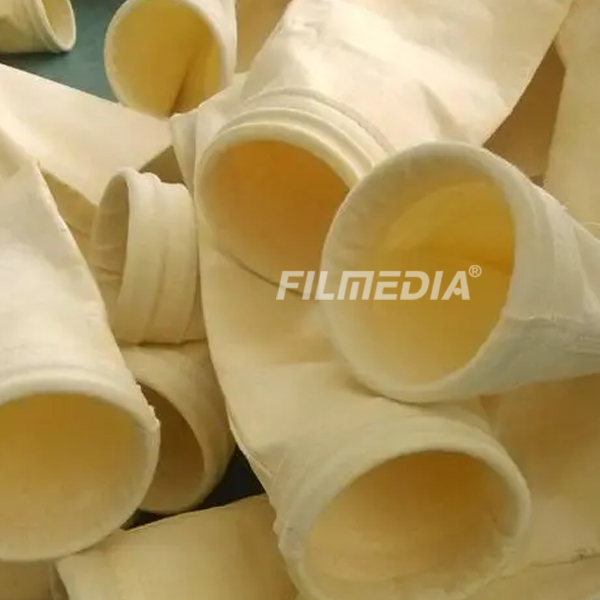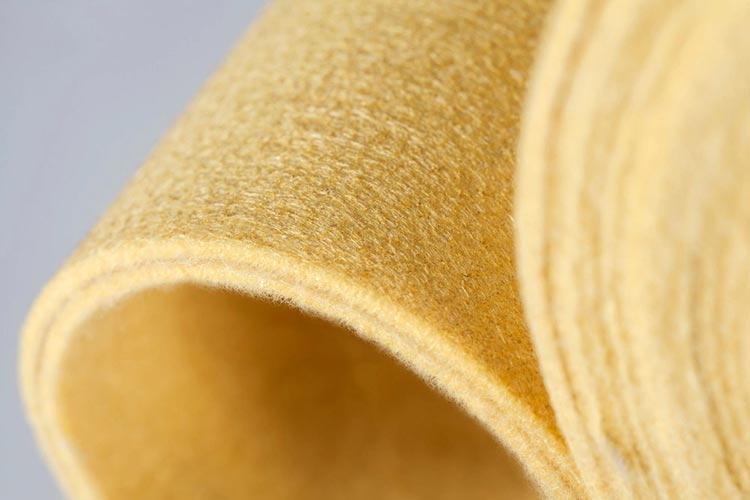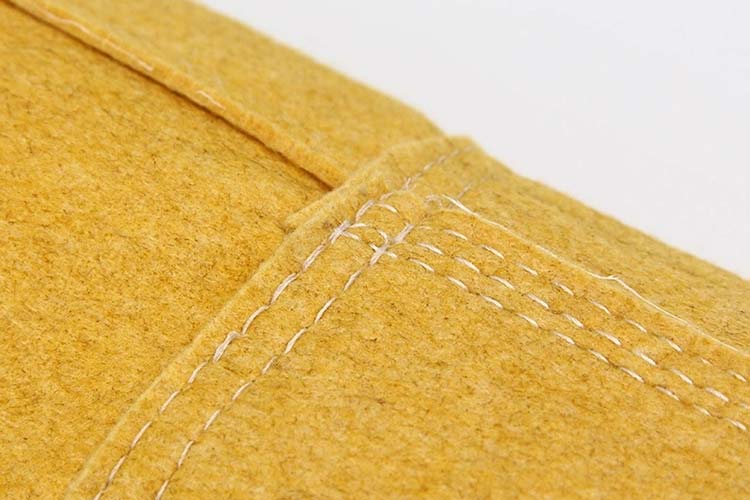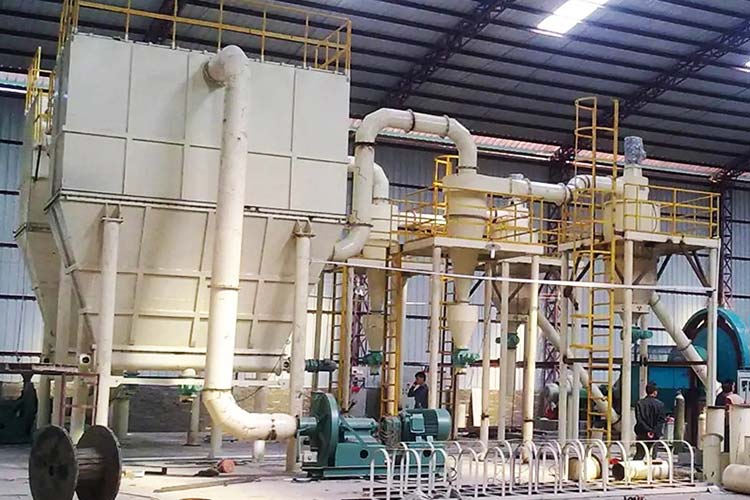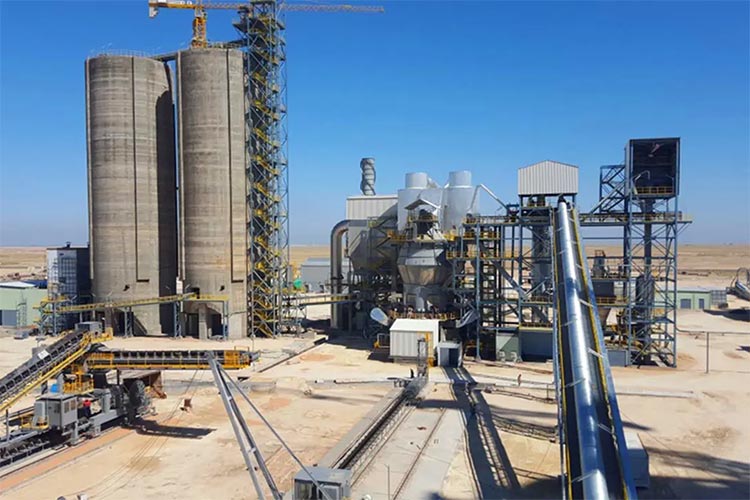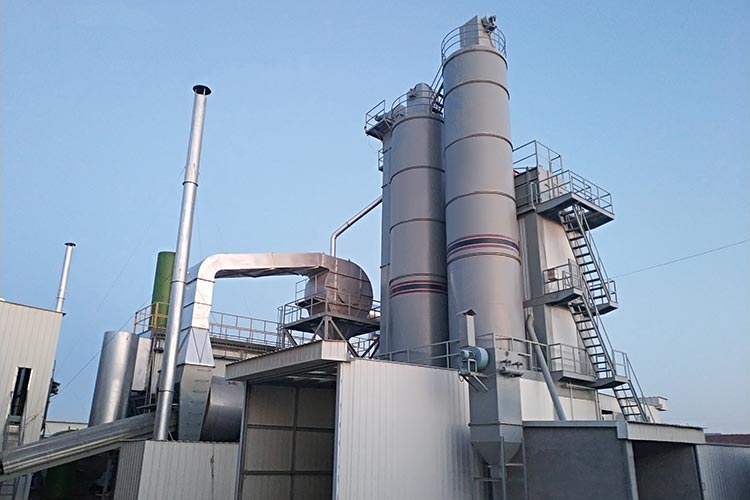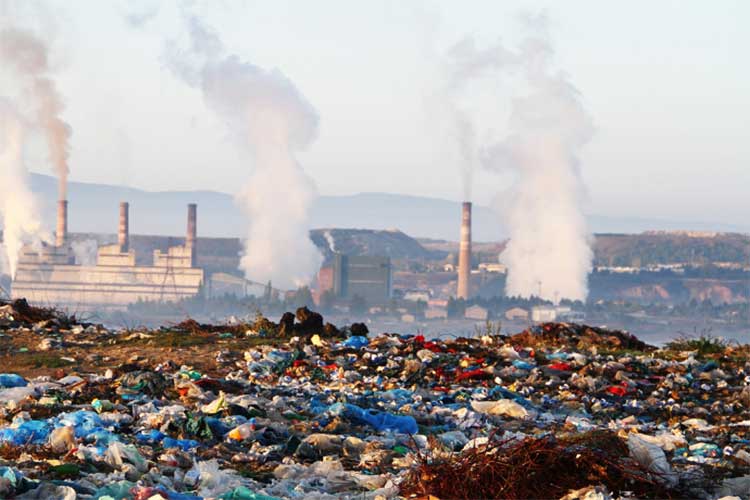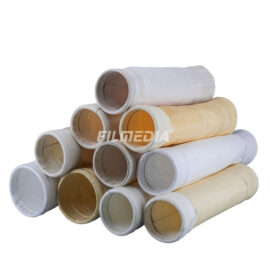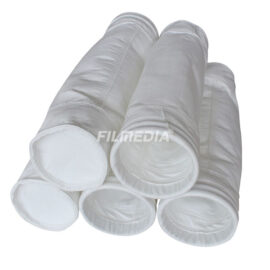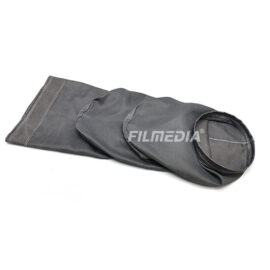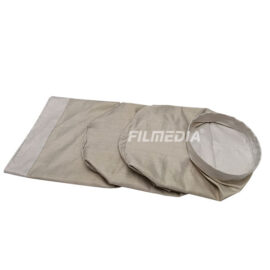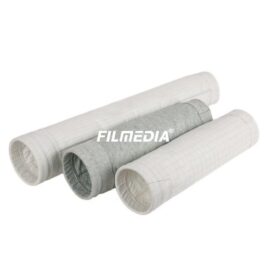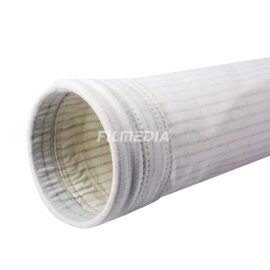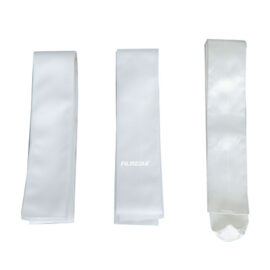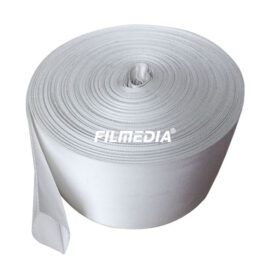- Common Size: Diameter 100mm, 125mm, 130mm, 150mm, 180mm, 250mm ect.
- Process Method: Automatic sewing or welded.
- Prodction Details: Double bottoms and reinforcement to make abrasion resistance.
- Sewing Thread: PTFE thread, polyester thread.
- Inspection: Inspection: Filter bags are inspected according to international standards, industry standards and enterprise standards.
- Capacity: 20000 per month (standard product).
If the filter bags you require are different from our usual ones, then please send us your drawing and select the material you require, as we also produce non-standard filter bags.
Description
P84 filter bags are a type of filter media commonly used in industrial applications, especially in air pollution control systems. They are resistant to high temperatures, have good corrosion resistance, and are acid resistant. Under the condition of 240℃, the mechanical properties of P84 polyimide fiber filter material will not change, and the maximum temperature resistance can reach 260℃. P84 fiber filter material has no melting point temperature and is naturally golden yellow. P84 polyimide fiber filter material is not a hygroscopic fiber filter material (at 65% relative humidity, about 3% water absorption).
Main Features
- High temperature resistance: Max. Operating temperature: 240℃/464℉; Ultimate temperature: 260℃/500℉.
- Excellent filtration efficiency: Due to it’s leaf-shaped cross section, It’s 80% increase in filtration area than other filter Media.
- Chemical stability: P84 material has good chemical stability and can resist erosion and corrosion from many chemicals, thereby extending the service life of the filter bags.
Physical Properties
| Air permeability(L/m2.s) @200pa | Tensile strength(N/5cm) | Temperature(℃ / ℉) | ||
| warp | weft | Operating | Ultimate | |
| 150~300 | 1000 | 1100 | 220 / 428 | 260 / 500 |
Chemical Properties
| Acid Resistance | Alkali Resistance | Hydrolytic Resistance | Oxidation Resistance | Abrasion resistance |
| Moderate | Moderate | Moderate | Good | Good |
Specification of P84 Filter Bags
| Heat resistance℃/℉ | Up to 260/500 |
| Fabric | 100% P84 fiber (polyimide) |
| Length & diameter | No limited |
| Area weight (g/m2) | 350~700 |
| Working lifetime | 8000 hours and more |
| MOQ | 50pcs |
How does Filmedia® improve filtration efficiency and reduce production costs?
- To increase system filtration capacity by 50-150% as needed without major changes to the dust collectors.
- System cleaning efficiency markedly increased with the effective increase of bag to bag distance.
- Bag life extended due to significant reduction of fatigue damage to the bags due to bag to cage impact.
Recommendations
- The hydrolysis and oxidation resistance of P84 filter bags are moderate. It is recommended that the water vapor content is less than 35% Vol and the O2 content is less than 16% Vol.
- Oxidized sulfides will shorten the service life of P84 bags. The oxidized sulfide content is recommended to be less than 700 mg/Nm3.
- Waste incinerators should be equipped with desulfurization devices.
Post-treatment for P84 Filter Bags
We can treat P84 filter bags with different post-processing according to different working conditions. There are mainly the following post-processing treatments:
- Water&Oil Repellent.
- PTFE Membrane.
Shapes and Types
P84 filter bags can be made into different types of filter bags, which can be mainly divided into the following three types:
- Round type.
- Flat type.
- Star/pleated type.
Application of P84 Filter Bags
P84 filter bags are mainly used in flue gas purification in gypsum plants, cement plants, liquid fluidized bed boilers, coal-fired boilers and waste incineration processes, and are widely used in processes with high emission concentration requirements.
- Cement Production: In cement plants, P84 filter bags are used in dust collection systems to capture cement dust and other particulates generated during the production process.
- Metal Smelting and Foundries: They are utilized in metal smelting and foundry operations to filter out metal oxides, dust, and fumes produced during the melting and casting processes.
- Waste Incineration: Waste incineration plants use them in their filtration systems to control emissions of particulate matter and pollutants generated from burning waste materials.
- Power Generation: In thermal power plants, they are employed in boiler systems and flue gas cleaning units to remove ash and other particulates from the exhaust gases.
- Chemical and Pharmaceutical Industries: They are also used in chemical processing plants and pharmaceutical manufacturing facilities where there is a need to control emissions of fine particulates and hazardous substances.
- Incineration of Hazardous Waste: Facilities that incinerate hazardous waste materials rely on them to ensure compliance with environmental regulations by capturing hazardous particulates and preventing their release into the atmosphere.
We Pay Attention to Every Processing Detail:
- Accurately design the size of the filter cloth required for the filter bag. The filter cloth will be larger than the actual design size to leave enough operating space.
- Choose the right filter bag accessories and check their quality.
- We draw, cut and sew the filter bags on an automatic production line. When the filter bag needs to be processed manually, we open it on the operating platform and use a certain pulling force to keep it flat.
- We maintain strict processing quality standards in accordance with design drawings and operating procedures. Our workers dress in compliance with safe construction requirements and are prohibited from smoking.

